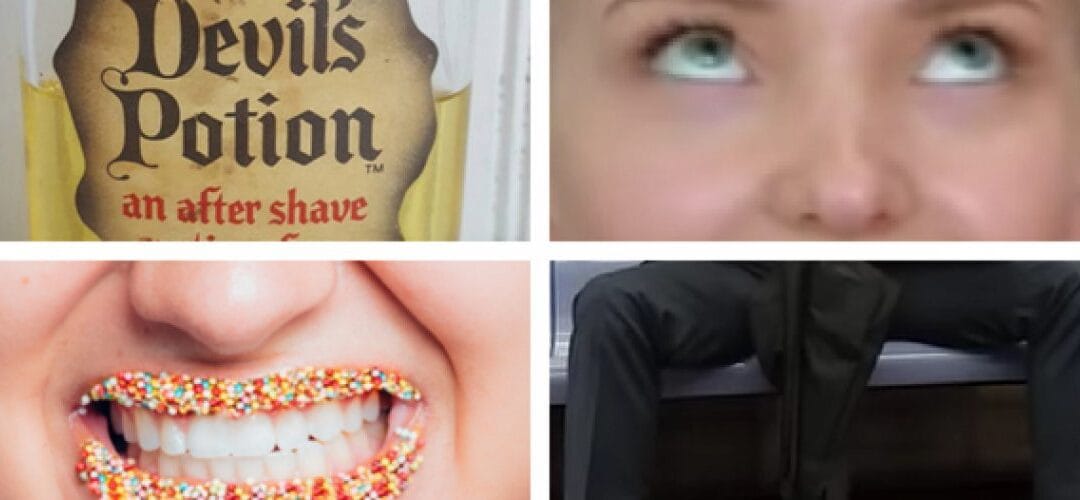By Paul Culp, MA (Oxon.), CFT, GCDF, CCSP
My friend Frank tends to live up to his name. He’s a very decent man, and he generally doesn’t trample other people, but he does speak his mind. Frank is the CEO of a marketing firm, and recently he was interviewing candidates for an entry-level position that required strong writing skills. One of the applicants shortlisted was a recent college graduate who wouldn’t have been there if she hadn’t compiled an impressive academic record, displayed some originality on a mini-essay that was part of the application, and aced a very demanding writing test. (Somewhat like applying for college, no?) She and Frank conversed for about ten minutes.
“I can’t hire you,” Frank then told her frankly. “I can’t take you seriously because of the way you talk. Your voice goes up like this? At the end of every sentence? And you, like, say ‘like’ all the time? Thank you for your interest in this position.”
We’re not picking on young women here. My dad, as a newspaper editor interviewing applicants for a reporter position, encountered a young male candidate who had a solid resume but whose first words on entering the office doomed him:
“Hey, man!”
The interviewee might just as well have spat on dad’s desk. Luckily dad reached retirement age before everyone started saying “dude.”
We share these cautionary tales about job interviews because they are as applicable to college admissions interviews as they are to the workplace. It’s true that college admissions officers can be highly tolerant of the fact that interviewees are still young and are very much works in progress, and it’s true that we live in times that are in some ways increasingly flexible about social norms–but if your academic record and test scores and resume are roughly equal with those of a candidate who presents himself or herself better, you probably will lose out.
Here are a few key points to bear in mind:
Just for openers…
Though research results vary, most scientific studies on first impressions agree that people form them in a matter of a few seconds. We’ll discuss personal appearance shortly, but your dress and demeanor are on display throughout the college interview, whereas you get only one shot at a hello and a handshake. When introduced to the interviewer, look him or her in the eye, speak clearly, and smile. You don’t want an exaggerated beauty-pageant rictus, but you do want to avoid looking glum or like you don’t want to be there. You also need to cultivate a high-quality handshake. Don’t try to crush the other person’s hand, but don’t allow your own fingers to collapse into mush. Find someone to practice with, if necessary; this is not a trivial matter.
Avoid “like” and be liked.
As far as speech is concerned, nothing will set you apart in a good way like being able to communicate without using “like” as a filler. During my teaching career, I occasionally kept count when listening to students, and my all-time champ was a high school senior who said “like” 25 times in one minute–but he had plenty of competition. There is no way to sound intelligent while peppering your speech with “like,” and since the overwhelming majority of teens have been running wild for years in that area, you will certainly distinguish yourself in a college interview if you discipline yourself to avoid “like.” Easier said than done–but if you manage it, you’ll be a regular Demosthenes compared with most of the competition. The effort will be well worth it, in college and beyond.
Talk yourself up without uptalk.
College interviews require you to be polite and to project a certain amount of strength and confidence, even though it’s understandable if some nervousness shows through. If you want to stand out as a poised individual who is in charge of herself and not unduly influenced by peers, it’s essential that you curb the tendency toward “uptalk” or “upspeak,” that rising inflection that makes every sentence sound like a question. As vocal trainer Susan Miller puts it in an article for Parent Insider, “Uptalk expresses uncertainty and conveys a ‘little girl’ persona.” It has become increasingly common even among young business and professional people, which means that if you address the problem now, you’ll continue to stand out once you’re launched on your career.
Don’t cook your own goose by frying the college interview.
“Vocal fry” occurs when the voice trails off and becomes creaky and croaky during an utterance, particularly at the end of a sentence, and it has become a regular feature of the speech of young people of both sexes. Though widely considered a feminine phenomenon, vocal fry is actually more common among males in the 18-22 age bracket, according to a study by Centenary College, which concluded that males fry about 25 percent of the time, compared with 10 percent for females, but that the two sexes fry differently.
While women fry mostly at the end of sentences, which adds a tentative quality akin to the effects of uptalk, men drop into fry mode off and on throughout their sentences. Jessica Alexander, assistant professor of psychology at Centenary, says that since men generally speak in a lower register, they drop into frying range more easily and the change of intonation is less noticeable and sounds more natural.
University of Miami political scientist Casey Klofstad, who conducted a 2014 study of vocal fry, says that we “tend to view behaviors that aren’t normal as untrustworthy,” which might explain why the study found that young women who exhibited vocal fry were “perceived as less competent, less educated, less trustworthy, less attractive, and less hirable” than non-frying peers.
And apparently it’s not a matter of sexism:
Negative perceptions of frying were strongest when both speaker and listener were female.
The moral to the story: Don’t go into your college interview talking like a Kardashian.
Posing a problem…
Both sexes: Stand up straight, shoulders back. Female applicants, please avoid the slouching, forward-thrust pelvis affected in recent years by runway models. And then there’s that bent-leg business: Apparently a memo went out a few years ago instructing young women to stand with their weight on one foot and the free leg thrown forward with the knee sharply bent. This does nothing except convey the appearance that something is wrong with your leg. It’s a position generally associated with cast and crutches.
And speaking of knees: Male applicants, please do not sit with your legs wide apart in the posture known as subway spread or man-spreading. Crossing your legs sharply with one ankle resting on the other knee is also a bad idea, as it looks a bit too casual in the college interview environment. Besides, sitting that way can ruin your creases if you’re wearing slacks or a suit.
And please, everyone, sit up straight.
Dressing with good scents
The cardinal rule for the college interview is to avoid wearing anything juvenile, sloppy, or distracting. For most colleges, business casual is appropriate, but if you’re uncertain about any particular outfit or item, err on the side of business, not on the side of casual.
Male candidates should at the very least wear slacks or chinos with a dress shirt, preferably long-sleeve. Adding a tie or blazer or both would be helpful. A blazer with open-collar shirt is a more mature, polished look than a shirt and tie with no blazer. Make sure your shoes are clean and well-polished–that includes the edges of the soles and heels–and that everything you wear fits well and is well-pressed. If you have facial hair, see that it’s neat and well-kept. You might need to ask someone you can really count on for an honest opinion whether that facial hair is ready for prime time; sometimes, when we’re young, our ambitions exceed our capacities in this very personal area.
Smart College Visit recommends that female interviewees create a positive impression with a “knee-length skirt or dress trousers with a simple blouse.” We suggest that a blazer or suit jacket also might be a good thing. Shoes should be well-polished, and female candidates should “leave the platforms with the nine-inch heels and fishnet stockings for another occasion.” It used to go without saying that plunging necklines, bare midriffs, and skirts with high slits were unacceptable, but now we feel that we must say it: Do not commit these social errors.
Both sexes should go easy–very easy–on the jewelry. Keep the number of pieces to a minimum, and keep them small. Cosmetics should be simple and minimal, hair undistracting in style and color.
The caution about jewelry goes double for fragrances. To put it simply, no one should be able to detect your aftershave, cologne, or perfume much beyond hugging distance.
Are you ready for that college interview? TCE might be the key.
The content of the college interview itself–what sort of questions to expect and how to answer them–is a topic for another time, and The Coaching Educator does help clients with preparation for that all-important discussion. But whatever your level of preparedness, you can be confident that you’re more likely to get a respectful hearing if your appearance and demeanor in the college interview setting suggest that you’re worth listening to. Presenting yourself appropriately is a vital part of performing well in almost any interview, and the college interview is no exception.
We’ve been helping students with college admissions and financial aid for nearly a decade now. To learn more about our philosophy and capabilities, be sure to watch our free webinars, listen to our podcasts, sign up for our four-week College App Boot Camp, consider our Ultimate Programs and our special services for athletes and performing-arts students, and book a consultation to hear what we can do for you and how we do it. Keep reading this blog, and look for us on social media (see links below) as we keep our clients and admirers advised of new developments in our effort to help students get into and succeed at the right school.
Recommended Reading About College Admissions and Scholarships
Culp, Paul. “How to Get the Most Out of a College Visit,” The Coaching Educator, 8 February 2019, http://tce.local/2019/02/08/how-to-get-the-most-out-of-a-college-visit/
Culp, Paul. “Meet the Deciders: College Admissions Officers and What They Do,” The Coaching Educator, 27 October 2018, http://tce.local/2018/10/27/meet-the-deciders-college-admissions-officers-and-what-they-do/
Culp, Paul. “Ten Common Mistakes You Must Avoid in Applying for College,” The Coaching Educator, 31 August 2018, http://tce.local/2018/08/31/ten-common-mistakes-you-must-avoid-in-applying-for-college/
Culp, Paul. “Ten Common Mistakes You Must Avoid in Applying for Scholarships,” The Coaching Educator, http://tce.local/2019/02/06/ten-common-mistakes-you-must-avoid-in-applying-for-scholarships/

